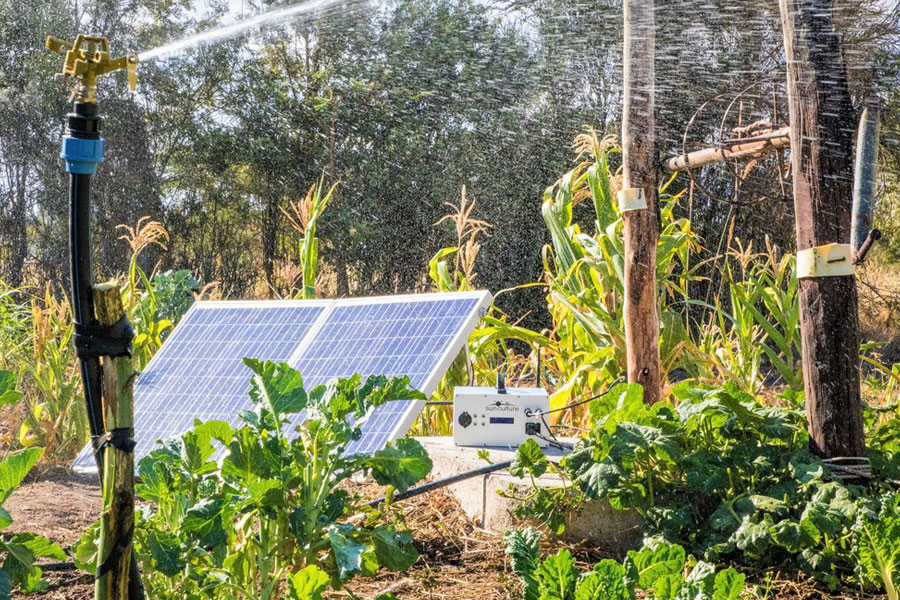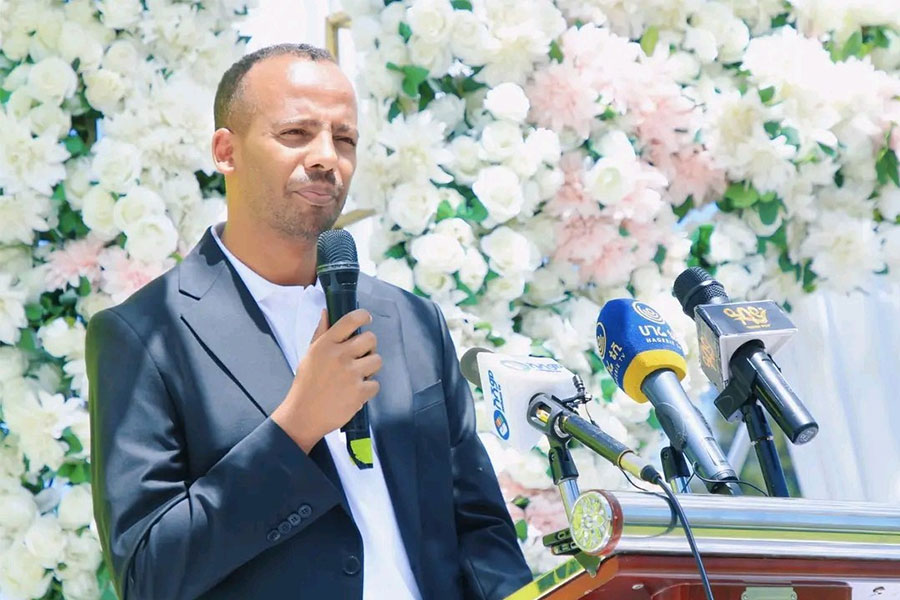
Sunday with Eden | Mar 23,2024
Lia Tadesse's (MD) Ministry of Health foresees building a national reference laboratory as part of a project funded with funds secured from the World Bank.
The laboratory is slated to make Ethiopia the fourth in Africa to host a standard biosafety level-3 lab. BSL-3 laboratories are characterised by safety equipment designed to study airborne diseases and toxins to public health. The lab is to be erected in the premises of the Ethiopian Public Health Institute (EPHI) headquarters near St. Paul's Hospital, on the north-west edges of Addis Abeba, for a projected cost of 23 million dollars.
Health authorities say that half a dozen consulting firms have expressed interest thus far, though they decline to disclose their identities for the tending process is still ongoing.
It will remain open for the coming month, but there is a possibility of extension, says Gemechis Olani, the Ministry's director for finance and procurement.
The consultants are expected to supervise the construction process. Officials hope the bid evaluations to take two months.
"We hope to start construction in the coming five months," said Dereje Duguma (MD), a state minister for Health.
Those in the medical profession say the BSL-3 laboratory will boost diagnostic capabilities.
"The lab will be a place where East African countries can test for viruses such as monkeypox and ebola," said Daniel Melese, director of lab capacity building at the Health Institute.
Ethiopia lags far behind in the availability of advanced medical equipment and diagnostic facilities. The limited number of laboratories is a challenge for medical practitioners, forcing them to make decisions without sufficient laboratory analysis. Nearly 70pc of clinical findings are dependent on laboratory testing.
Gezachew Kedia serves as executive director of the Ethiopian Medical Laboratory Association, established in 1964 as a lobby group of 2,500 members. The Association comprises 15pc of laboratory professionals in the country.
He blames the absence of laws regulating diagnostics.
"Patients don't receive adequate treatment," he told Fortune.
Tikur Anbessa (Black Lion), the oldest and largest public hospital with 1,000 beds and over 3,400 staff, treats 20,000 patients daily. It carries out nearly 100 types of diagnostic tests in its laboratory. The cost of some of these tests and a lack of funding limit the medical tests the Hospital conduct, according to Temsegen Sisay, laboratory director.
Financial constraints prevent Temesgen and his team from providing testing services for medical cases, including tuberculosis (TB).
Private diagnostic centres also face challenges.
Arsho Medical Laboratory was established in 1972 by Arshavier Terzian (MD). It has since become one of the country's principal private medical diagnostic facilities. It offers a variety of diagnostic tests through 11 branches. However, a lack of facilities forced it to send samples abroad for hepatitis testing. Its Laboratory Director, Meseret Chane (MD), disclosed that Arsho has plans to become the first to begin testing for hepatitis B and C.
Nonetheless, Arsho faces difficulties due to a shortage of chemicals and reagents to run tests, as well as a lack of parts for medical equipment. This is despite reagents sitting at the top of the central bank's priority list for forex allocation.
Gemeda Abebe (PhD) is a lecturer at Jimma University and the manager of a mycobacteriology research centre. He has been working in laboratories for over two decades.
Gemeda attributes the shortfalls in diagnostic testing centres to the absence of a capable regulatory body and urges officials to give due attention to the issue.
He observes that the faulty distribution of laboratory professionals is also a drawback.
A study conducted by the Medical Laboratory Association four years ago revealed that less than a third of health centres in the Amhara and Oromia regional states have laboratories, despite the regions accounting for around half of the population.
"Due to this, many clinical mistakes are made," said Gemeda.
Officials hope to see the national reference laboratory address some of these issues. The construction is part of a 150 million dollar project under the Africa Centres for Disease Control & Prevention (CDC) – a specialised agency under the African Union (AU) established to support public health institutions in the continent. China is putting up a multimillion dollars headquarters in Addis Abeba, whose construction was launched two years ago in the southern suburb of Addis Ababa.
Featuring modern offices, high-end laboratories and accessories, the project covers a 90,000sqm. It is expected to be completed in three months.
The Africa-CDC also seeks to build labs in remote areas such as Moyale, a border town with Kenya, and erect training and data centres. In addition to the construction of the reference laboratory in Addis Abeba, regional laboratories will likely take up four million dollars.
PUBLISHED ON
[ VOL
, NO
]

Radar | Jan 04,2020

Fortune News | Apr 03,2023

Radar | Apr 27,2025

Fortune News | Apr 17,2020

Fortune News | Jul 30,2022

Dec 22 , 2024 . By TIZITA SHEWAFERAW
Charged with transforming colossal state-owned enterprises into modern and competitiv...

Aug 18 , 2024 . By AKSAH ITALO
Although predictable Yonas Zerihun's job in the ride-hailing service is not immune to...

Jul 28 , 2024 . By TIZITA SHEWAFERAW
Unhabitual, perhaps too many, Samuel Gebreyohannes, 38, used to occasionally enjoy a couple of beers at breakfast. However, he recently swit...

Jul 13 , 2024 . By AKSAH ITALO
Investors who rely on tractors, trucks, and field vehicles for commuting, transporting commodities, and f...

Jul 5 , 2025
Six years ago, Ethiopia was the darling of international liberal commentators. A year...

Jun 28 , 2025
Meseret Damtie, the assertive auditor general, has never been shy about naming names...

Jun 21 , 2025
A well-worn adage says, “Budget is not destiny, but it is direction.” Examining t...

Jun 14 , 2025
Yet again, the Horn of Africa is bracing for trouble. A region already frayed by wars...